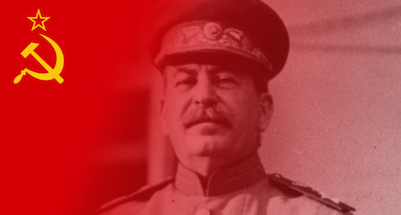For example: While half the Russians surveyed agree with the statement that “Stalin was a wise leader who brought power and prosperity to the Soviet Union”, over half the people polled in the same survey believe that Stalin's acts of repression “constitute a political crime that cannot be justified”. About two thirds agreed that “for all of Stalin's mistakes and misdeeds, the most important thing is that under his leadership, the Soviet people won the Great Patriotic War”.
The Carnegie Endowment survey of 2012 concluded that:
Stalin is still powerfully identified with the World War II victory. Defeating the Nazis is still an indelible memory in all four countries polled (Armenia, Azerbaijan, Georgia and Russia), especially amongst the older generation. Respondents continue to admire him as a heroic wartime leader while at the same time rejecting his acts of repression.
The Russian de-Stalinization efforts have been half-hearted. One might say that there have been two and a half attempts to arouse the public in an open discourse on Stalin's crimes. Only one of them, during Gorbachev's rule, had any success. In an effort to strengthen his authority, Putin has found it useful to invoke the image of Stalin.
The younger generation has a different orientation. Younger Russian urbanites are de-Sovietized, more self-sufficient and not personally loyal to all aspects of Russian history. Amongst this sector of society Stalin's mystique is losing its importance and attractiveness.
De-Stalinization of Georgian society has hardly had any impact. For Georgians, Stalin is still a powerful ethno-cultural icon, not a political model. The deliberate and forceful anti-Stalin and anti-Soviet campaigns of the government of President Mikheil Shaakasvili was open and public, but superficial. Favourable opinions of Stalin remain dominant.
But present day Russia is still the country where the legacy of Stalin is the most deeply rooted. There is something contradictory about this observation because outsiders would be hard pressed to believe that Stalin is still the Russians' greatest compatriot. Very rarely are Stalin's statues or portraits to be found, neither are there streets or cities named after him. Buses, as an exception, have been adorned with pictures of Stalin in various cities on Victory Day and other wartime anniversaries. As a comparison, the embalmed body of Lenin is still displayed in Red Square and his name and monument are prominently seen in every Russian city. At the same time his popularity between 1989 and 2012 dropped from 72 to 37%. As a contrast 42% of Russians 2012 held Stalin to be the leader that has had the most influence on world history. This is up from 12% in 1989. It was under Stalin after all that the Soviet Union was at its most powerful.
Even though Vladimir Putin has been accused of embracing a neo-Stalinist style of governing, it was Dmitry Medvedev, filling in as president during Putin's constitutionally mandatory “sabbatical” as prime minister, who posted a seemingly heartfelt video blog on the Kremlin's website in 2009 which condemned Stalin's “war crimes”. This was followed up by Medvedev's Council on Human Rights and Civil Society which announced a comprehensive program of de-Stalinization.
However, not long after, Medvedev praised the FSB saying that the current generation of FSB officers would “carry on the traditions of their predecessors with dignity” referring to the same CHEKA/NKVD/KGB officers that he so glibly previously had accused of committing “one the greatest tragedies in the Russian history”. (To be continued.)
Laas Leivat
- Opinion – Stalinization, de-Stalinization, what's it to be? – VII
- Opinion – Stalinization, de-Stalinization, what's it to be? – VI
- Opinion – Stalinization, de-Stalinization, what's it to be? – V
- Opinion – Stalinization, de-Stalinization, what's it to be? – IV
- Opinion – Stalinization, de-Stalinization, what's it to be? – III
- Stalinization, de-Stalinization, what's it to be? – II
- Stalinization, de-Stalinization, what's it to be? – I




